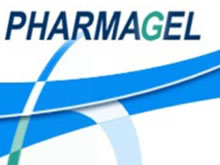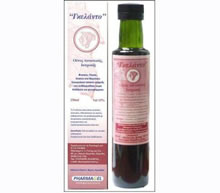
Dictionary of Allergies .. Aspartame
Aspartame is an O-methyl ester composed of phenylalanine and aspartic acid. After its approval as a sweetener in 1981, a number of reports of adverse reactions to aspartame appeared in the literature. According to Garriga et al (1991) it is difficult to recruit study subjects with a history of hypersensitivity reaction to aspartame and that subjects who believed themselves allergic to aspartame did not have reproducible reactions. Since their discovery, the safety of artificial sweeteners has been controversial Concern has been expressed over its widespread use but analysis of adverse reaction reports and available clinical data suggests that it is remarkably safe [1].
The safety of aspartame and its metabolic constituents was established through extensive toxicology studies in laboratory animals, using much greater doses than people could possibly consume. Its safety was further confirmed through studies in several human subpopulations, including healthy infants, children, adolescents, and adults; obese individuals; diabetics; lactating women; and individuals heterozygous (PKUH) for the genetic disease phenylketonuria (PKU) who have a decreased ability to metabolize the essential amino acid, phenylalanine.
Several scientific issues continued to be raised after approval, largely as a concern for theoretical toxicity from its metabolic components--the amino acids, aspartate and phenylalanine, and methanol--even though dietary exposure to these components is much greater than from aspartame. Nonetheless, additional research, including evaluations of possible associations between aspartame and headaches, seizures, behavior, cognition, and mood as well as allergic-type reactions and use by potentially sensitive subpopulations, has continued after approval. These findings are reviewed here. The safety testing of aspartame has gone well beyond that required to evaluate the safety of a food additive. When all the research on aspartame, including evaluations in both the premarketing and postmarketing periods, is examined as a whole, it is clear that aspartame is safe, and there are no unresolved questions regarding its safety under conditions of intended use.[2]
1. Carriga, M.M.: Aspartame intolerance. Ann. of Allergy 1988:61:63.Garriga, M.M., et al: A combined single-blind, double-blind, placebo-controlled study to determine the reproducibility of hypersensitivity reactions to aspartame. J. Allergy Clin. Immunol. (1991) 87, No. 4, p. 821-827.
2. Butchko HH, Stargel WW, Comer CP, Mayhew DA, Benninger C, Blackburn GL, de Sonneville LM, Geha RS, Hertelendy Z, Koestner A, Leon AS, Liepa GU, McMartin KE, Mendenhall CL, Munro IC, Novotny EJ, Renwick AG, Schiffman SS, Schomer DL, Shaywitz BA, Spiers PA, Tephly TR, Thomas JA, Trefz FK. Aspartame: review of safety. Regul Toxicol Pharmacol. 2002 Apr;35(2 Pt 2):S1-93.
Γκέλης Ν.Δ. - Λεξικό Αλλεργίας - Εκδόσεις ΒΕΛΛΕΡOΦΟΝΤΗΣ - Κόρινθος 2013
Gelis Ν.D. - Dictionary of Allergies - VELLEROFONTIS Publications - Corinth 2013




